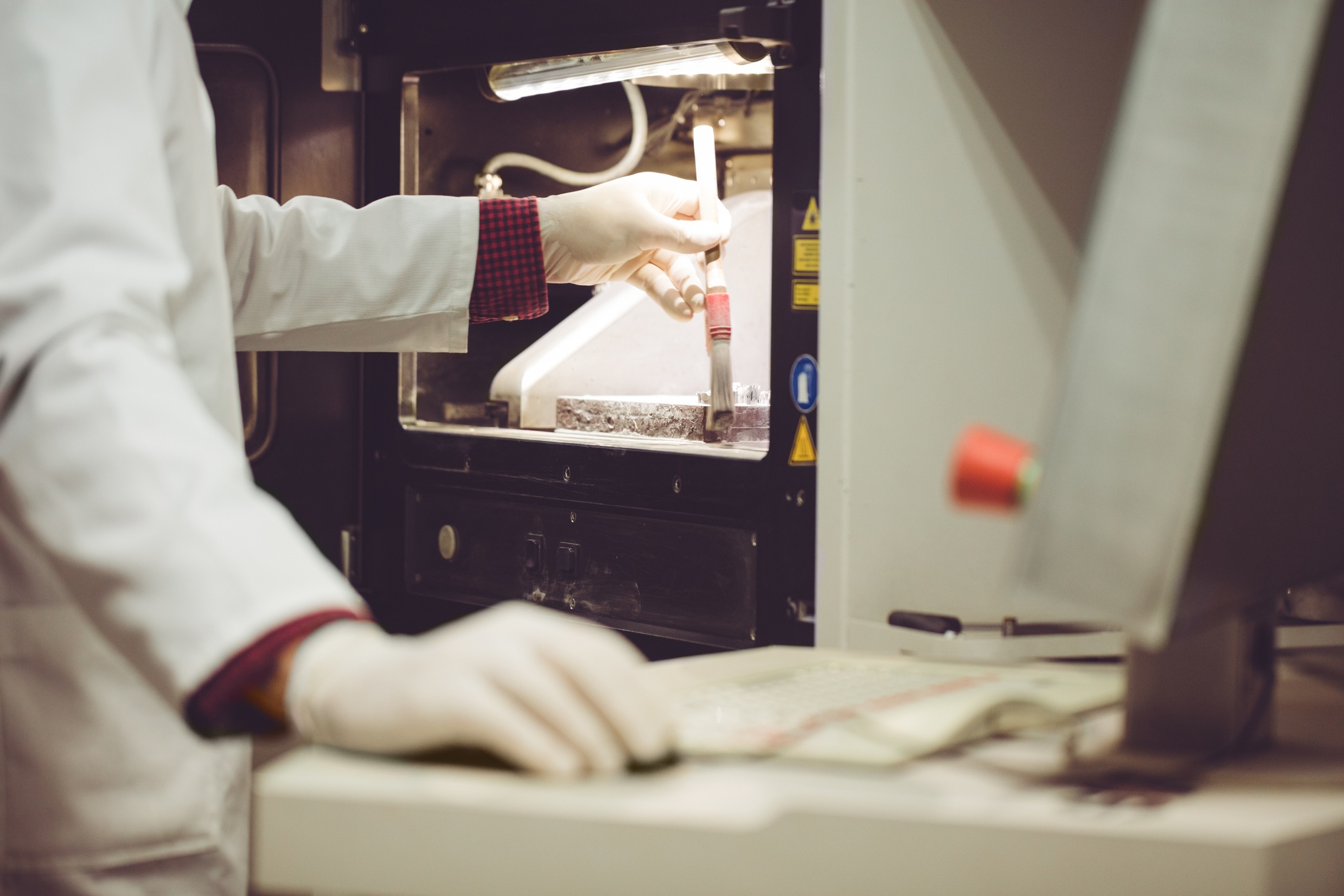
Aspect Biosystems, a 3D printing company based in Canada, was recently selected to carry out a $2.2 million project developing cancer treatments. The company’s microfluidic 3D bioprinting platform will be utilized in this project to create physiological, high-throughput tissues to be used in the screening process for immunotherapy treatments. These bioprinted tissues will hold utility in testing therapeutics designed to target hard-to-treat malignancies like triple negative breast cancer. This work will involve collaboration from pharma giants Merck and GSK, as well as McGill University’s Goodman Cancer Research Centre in Quebec.
The Goodman team, led by Morag Park, will be working with Aspect Biosystems to create tumors from breast cancer patients’ cells. Aspect Biosystems’ 3D printing expertise will be used to generate tissues that contain these cells, ultimately forming a model that can be used to test new drugs. Not only will these bioprinted structures evaluate the efficacy of such treatments, but they will be able to predict a patient’s response to the treatment as well.
“This public-private partnership is a great example of combining state-of the-art technology and science with world-class expertise and resources to accelerate the discovery and development of new therapies for patients,” said Tamer Mohamed, CEO of Aspect Biosystems in a press release.
Aspect Biosystems’ Lab-on-a-Printer 3D bioprinting technology allows the company to simultaneously print several biological compounds at once using microfluidic technology. This process forms complex models of organic human tissue that are optimal for testing the effects of treatments and stimuli.
“We are thrilled to partner with global biopharmaceutical leaders, GSK and Merck, as well as world-class groups at McGill and the Canadian Cancer Society that are dedicated to finding cures for cancer,” said Mohamed. “We are deeply committed to forming strategic partnerships to accelerate the impact of our technology on patient outcomes. In addition to our partnerships and programs focused on developing tissue therapeutics for regenerative medicine, our 3D bioprinting platform is also enabling breakthroughs in therapeutic discovery.”
In addition to evaluating therapeutic drugs, these bioprinted tissues also offer a potential solution to donor shortages. Though such technologies are far from creating whole replacement organs, 3D printing endeavors are advancing rapidly, and researchers are taking steps to eventually print functioning organs. Earlier this year, Aspect Biosystems partnered with the Institute for Technology-Inspired Regenerative Medicine at Maastricht University to bioprint kidney tissues using microfluidic technology.
The Goodman Cancer Research Centre team possesses a large bio-bank of tumor associated cells that will be used to create these 3D printed tumor models using Aspect Biosystems technology.
READ MORE: Penn State Researchers 3D Print Novel Porous Tissues
“We are excited to work with Aspect’s innovative team to combine our bio-bank of patient-matched tumour-associated cells with Aspect’s microfluidic 3D bioprinting technology to create programmable 3D tumour models,” said Dr. Morag Park, director, Goodman Cancer Research Centre at McGill University. “Solid tumour growth is regulated by complex interactions of tumour cells with the tumour microenvironment. This collaboration seeks to create a powerful new platform for studying these critical interactions in a human-relevant environment and, ultimately, accelerate the discovery and development of novel cancer immunotherapies.”
Funding for this research is provided by Aspect Biosystems, McGill University, GSK, Merck, the Canadian Cancer Society, and the CQDM biopharmaceutical research consortium.
Aspect Biosystems is proud to announce a collaboration with @MerckCanada, @GSK, and @McGillGCRC to enable the development of immuno-oncology therapeutics.
LEARN MORE: https://t.co/5q4wZRywbn https://t.co/5q4wZRywbn
— Aspect Biosystems (@aspectbiosys) June 4, 2019







 © 2025 Mashup Media, LLC, a Formedics Property. All Rights Reserved.
© 2025 Mashup Media, LLC, a Formedics Property. All Rights Reserved.